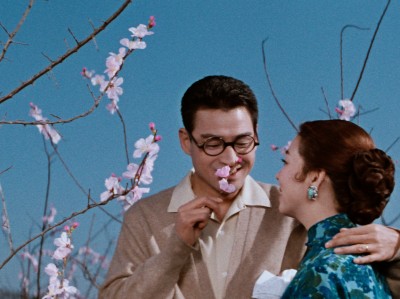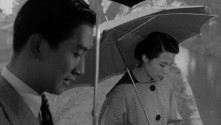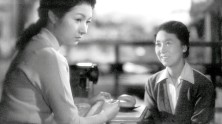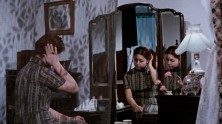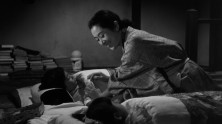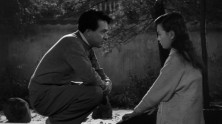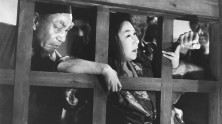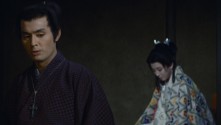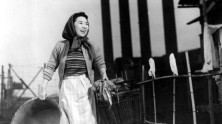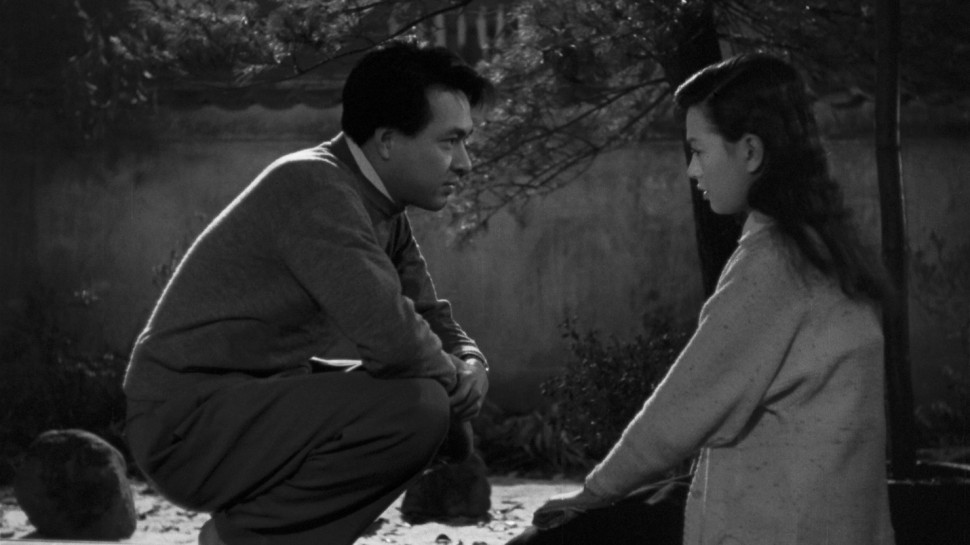
The Moon Has Risen
(Tsuki wa noborinu)
With Chishu Ryu, Shuji Sano, Hisako Yamane.
Japan, 1955, DCP, black & white, 102 min.
Japanese with English subtitles.
DCP source: Janus Films
Written by Yasujiro Ozu and Ryosuke Saito, The Moon Has Risen is a breezy romantic comedy about the awkwardness that emerges at the juncture between tradition and modernity. In a nod to Ozu, Chishu Ryu stars as an easy-going, joke-cracking widower whose youngest daughter decides to play matchmaker for her unwitting older sister. While audiences and critics were keen to point out Ozu’s influence, the film evolves beyond homage with Tanaka’s lively pace and frontal compositions, which contain large expanses between foreground and background. A number of devices from Love Letter reappear in The Moon Has Risen, presented with more precision: for instance, the recurring use of gossip as a means of indirect characterization—an unsurprising move given Tanaka’s familiarity with being the talk of the town. There are vivid contrasts between men and women (men wait to be served, women rush to serve) as well as older and younger people, who have very different opinions on when and how to confess. The filmmaker again makes a cameo, this time as a servant instructed by her employer to impersonate someone else on the phone. The scene is framed like an audition as the employer sits across from the nervous servant, hands her a sheet of paper, guiding her through the lines and finally complimenting Tanaka by saying, “You’re a natural.” The joke is reminiscent of Charlie Chaplin’s appearance in A Countess From Hong Kong, in that it assumes and teases the audience’s knowledge of Tanaka’s star power. The encounter itself, between a legendary actress and Nikkatsu’s up-and-coming It Girl, playfully extends Tanaka’s examination of generational differences among women to the realm of cinema. – Kelley Dong
